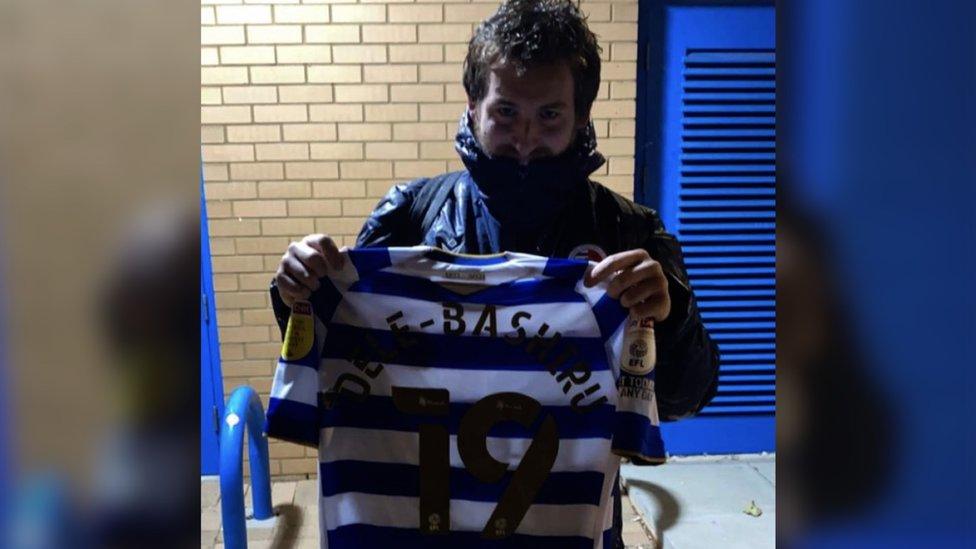'Life changing' Tourette's gadget trialled
- Published
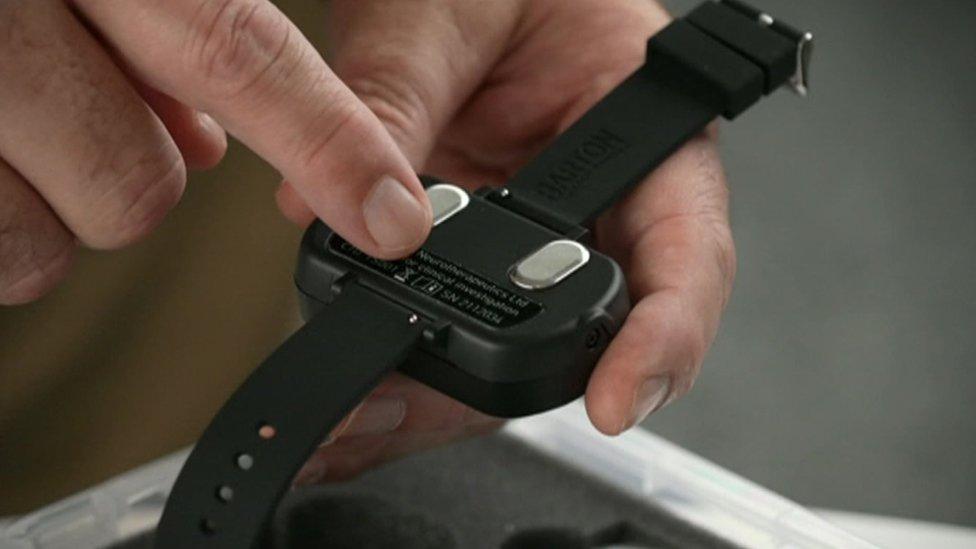
The device was developed in response to a demand for a medication-free solution
A device to help people with Tourette's syndrome has been developed by experts at the University of Nottingham.
The smartwatch-like gadget aims to reduce the involuntary sounds and movements, known as tics, by intercepting signals to the brain.
It is being tested in a clinical trial involving more than 100 people.
Alex Roberts' 13-year-old son is one of those taking part. She said it could be "life changing" for those with the condition.
Professor Stephen Jackson, who is running the trial, said the device worked by sending electrical stimulation via the wrist to the areas of the brain involved in generating the tics.
He said it was developed in response to a demand for a medication-free solution.
"People with Tourette's syndrome said to us they wanted a safe and effective treatment that they could use outside the clinic that didn't involve drugs but gave them control over their tics.
"Hopefully that's what this device will give them.
"It's not a cure but what it will give them is the opportunity to temporarily suppress their tics in situations where they feel it necessary," he said.
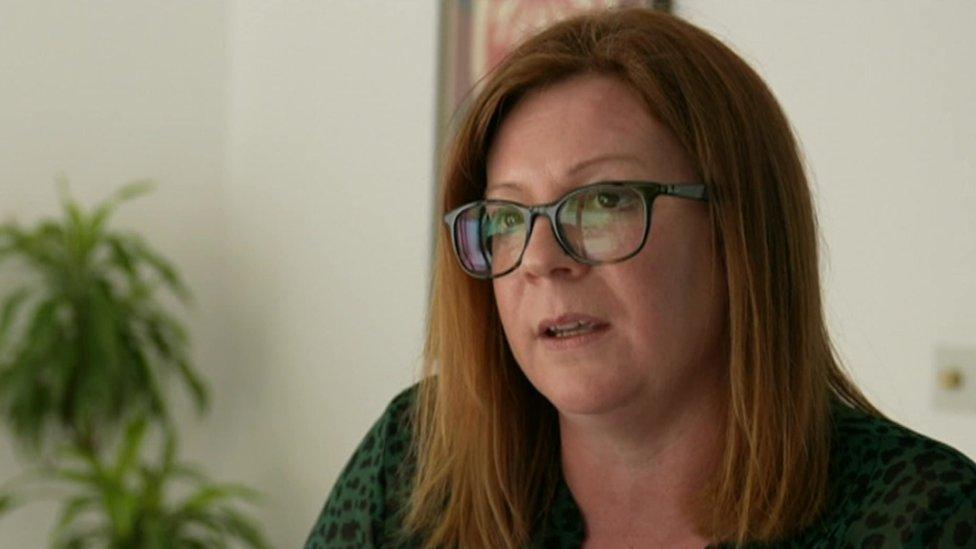
Alex Roberts' 13-year-old son is one of those taking part in the trial
Ms Roberts said she was scared and worried when her son was diagnosed with Tourette's four years ago.
"You go through a period of, sort of, grief, if I'm honest.
"You know you get a diagnosis that you don't know much about. I didn't know anything about it," she said.
She said it was brilliant to be a part of the trial that could be life-changing for her son and so many people.

Follow BBC East Midlands on Facebook, external, on Twitter, external, or on Instagram, external. Send your story ideas to eastmidsnews@bbc.co.uk, external.
Related topics
- Published2 May 2022
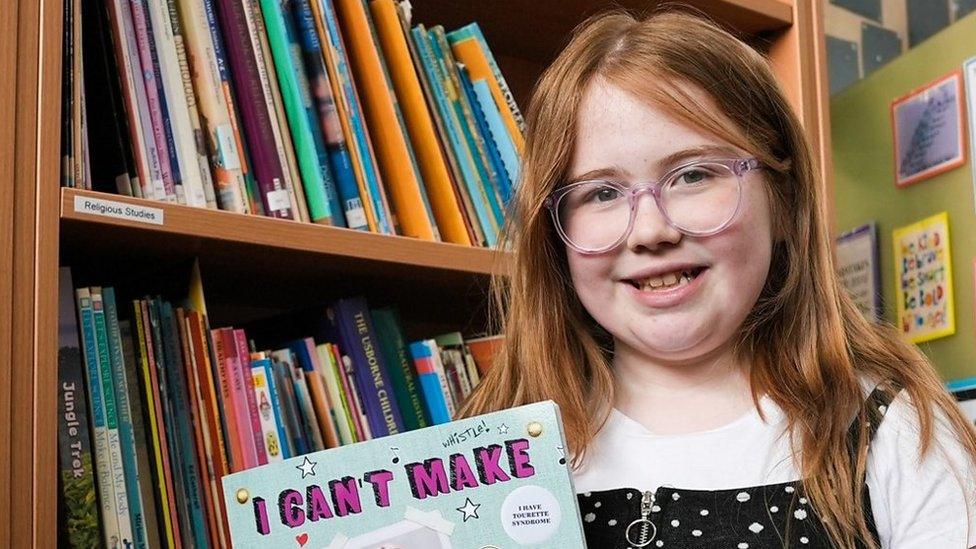
- Published27 January 2022
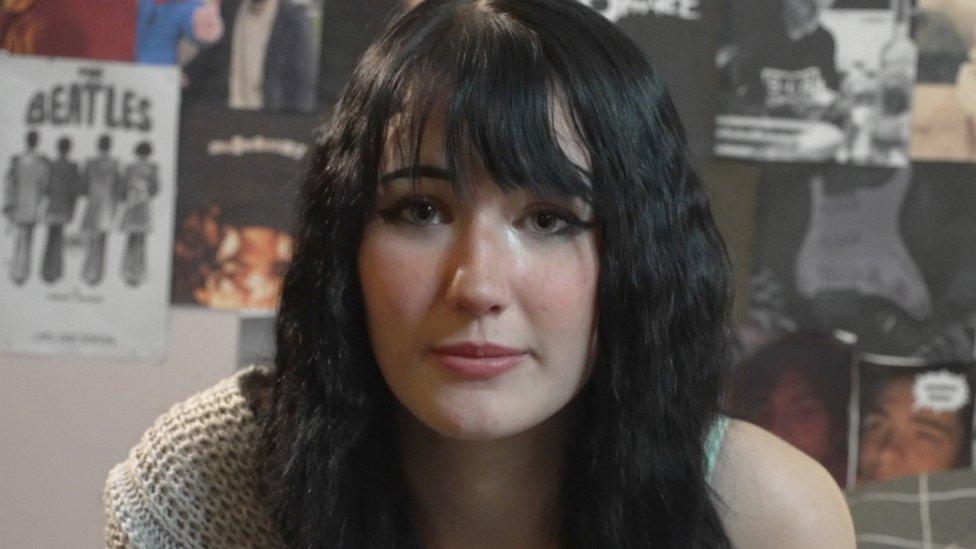
- Published17 November 2021
